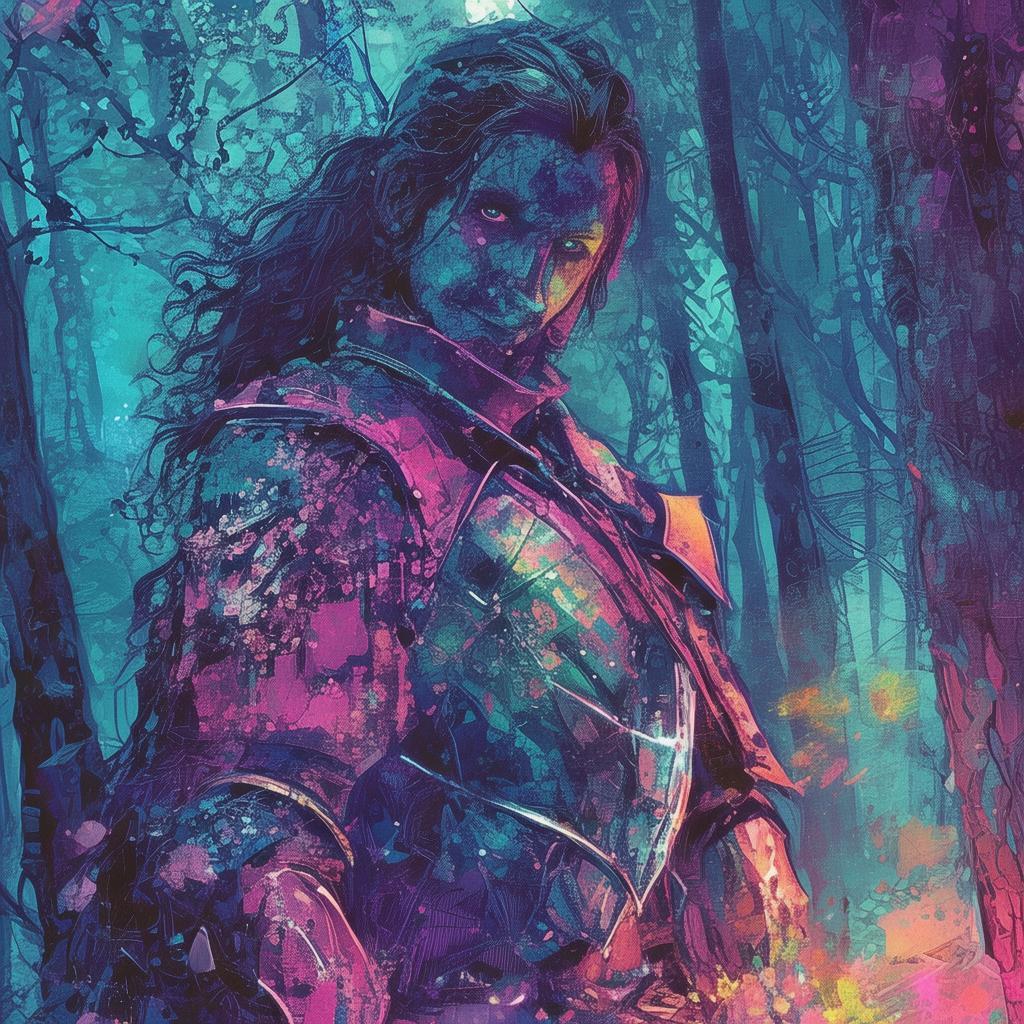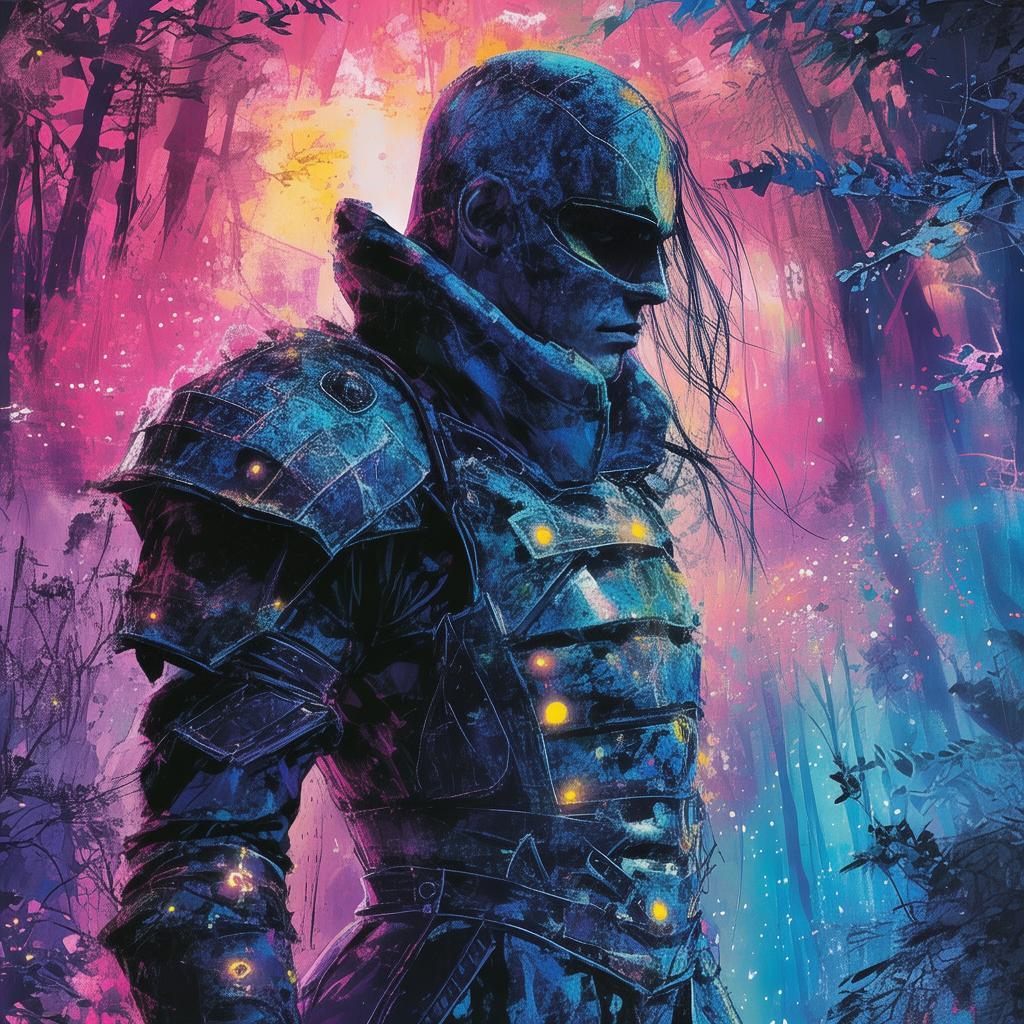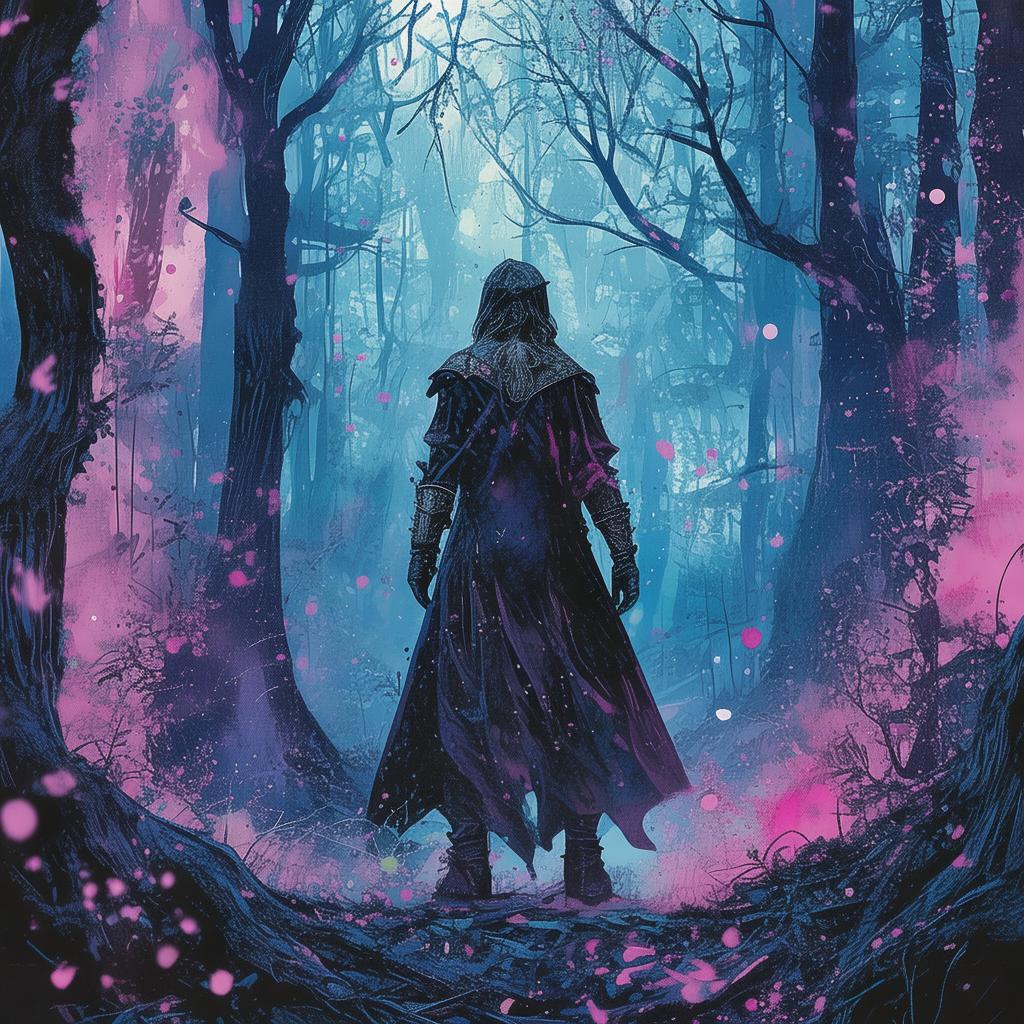The Bard's Requiem: A German and British Symphony
In the heart of the 17th century, the lands of Germany and Britain were embroiled in a bitter war. The German Bard, named Eberhard, and the British Bard, known as Isolde, were both renowned for their lyrical prowess. Eberhard, a minstrel of the Holy Roman Empire, and Isolde, a troubadour of the British Isles, were each bound by their love for music and for the respective lands they called home.
Eberhard's lullabies were a soothing balm to the soldiers who fought in the cold, muddy fields, while Isolde's ballads sang of the longing for peace that echoed in the hearts of those who lived under the shadow of war. Their voices were like the winds that swept across the English Channel, carrying their melodies from one shore to the other, yet they were separated by a chasm of conflict.
The tale begins with Eberhard's composition of a lullaby that would later become a symbol of German longing for peace. Its gentle strains were meant to comfort the weary soldiers, but it also served as a silent appeal for peace to the British earls and knights who heard it in the distance. The ballad, however, was Isolde's own creation, a tale of unrequited love and the enduring spirit of the British people, woven with threads of defiance against the occupying forces.
As the war raged on, the paths of Eberhard and Isolde crossed in a fateful encounter. They met at an inn on the edge of a battlefield, where both were taking a respite from the chaos. The innkeeper, an old friend of Eberhard's, had heard of Isolde's ballad and was eager to introduce the two bards. The meeting was brief but profound; their eyes met across the room, and a spark was kindled.
Eberhard, who had longed for a sign of peace, was captivated by Isolde's beauty and her love for her people. Isolde, on the other hand, felt a kinship with Eberhard, whose music spoke of a similar longing for tranquility. Despite the dangers of their situation, they shared a night of music and poetry, each performing for the other, their voices blending in harmony.
The following day, the battle resumed, and the two bards were forced to part ways. They promised to meet again, but the passage of time and the relentless march of war made it seem an impossible dream. Eberhard's lullaby became a rallying cry for German soldiers, while Isolde's ballad continued to stir the hearts of the British.
Years passed, and the war ended. The two lands, weary of conflict, sought reconciliation. Eberhard and Isolde, who had remained apart, found themselves in the same place once more—the same inn where they had first met. This time, their reunion was amidst the peace talks that would shape the future of Europe.
As they walked through the inn, the walls echoing with the melodies of the past, they shared their stories. They spoke of the sacrifices made and the dreams of a united continent. Their voices, once divided by conflict, now sang a harmonious tune.

Eberhard revealed that his lullaby had become a symbol of German unity, and Isolde spoke of the British people's willingness to move forward. They realized that their music, once meant to comfort and to fight, had the power to heal.
In a moment of profound connection, Eberhard and Isolde decided to merge their talents. They crafted a new piece, a symphony of lullabies and ballads, that would tell the story of their love and the love of their people for peace. They performed this symphony for the delegates of peace, their music transcending language and borders.
The symphony was a triumph, and it became the anthem for a new era. Eberhard and Isolde's love story, once separated by war, had become a symbol of the enduring power of love and music to bring people together.
The Bard's Requiem, as their symphony was called, became a legend. It was said that whenever a child was born, the symphony was played to welcome them into the world, a testament to the belief that even in the darkest times, love and hope could flourish.
In the end, Eberhard and Isolde's love transcended the bounds of time and conflict. Their story became a testament to the power of music and the human spirit, a legend that would be told for generations to come.
✨ Original Statement ✨
All articles published on this website (including but not limited to text, images, videos, and other content) are original or authorized for reposting and are protected by relevant laws. Without the explicit written permission of this website, no individual or organization may copy, modify, repost, or use the content for commercial purposes.
If you need to quote or cooperate, please contact this site for authorization. We reserve the right to pursue legal responsibility for any unauthorized use.
Hereby declared.









